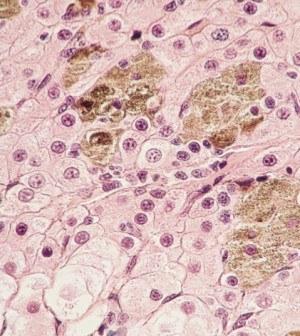- Could Your Grocery Store Meat Be Causing Recurring UTIs?
- Are You Making This Expensive Thermostat Error This Winter?
- Recognizing the Signs of Hypothyroidism
- 10 Strategies to Overcome Insomnia
- Could Artificial Sweeteners Be Aging the Brain Faster?
- Techniques for Soothing Your Nervous System
- Does the Water in Your House Smell Funny? Here’s Why
- Can a Daily Dose of Apple Cider Vinegar Actually Aid Weight Loss?
- 6 Health Beverages That Can Actually Spike Your Blood Sugar
- Treatment Options for Social Anxiety Disorder
Cholbam Approved for Rare Metabolic Disorders


Cholbam (cholic acid) capsules have been approved by the U.S. Food and Drug Administration to treat adults and children with bile acid synthesis disorders and peroxisomal disorders, the agency said in a news release.
People with these rare disorders lack enzymes to process cholic acid, normally made by the liver from cholesterol. This leads to reduced bile flow, potentially poisonous buildup of bile acid products in the liver and less absorption of fats and vitamins. Left untreated, the disorders could cause deadly liver damage, the FDA said.
Cholbam is sanctioned for adults and children aged 3 weeks and older. The drug was evaluated in clinical studies involving some 79 people aged 3 weeks to 36 years. Two-thirds of people with bile synthesis disorders treated with the drug survived longer than three years. And 42 percent of people with peroxisomal disorders survived longer than three years, the agency said.
Diarrhea was the most common side effect of the drug. Its use should be carefully monitored, the FDA said, and discontinued if the user’s liver function worsens.
The agency said it is requiring a post-approval study to further evaluate Cholbam’s long-term safety.
The drug is produced by Asklepion Pharmaceuticals, based in Baltimore.
More information
Visit the FDA to learn more.
Source: HealthDay
Copyright © 2026 HealthDay. All rights reserved.










